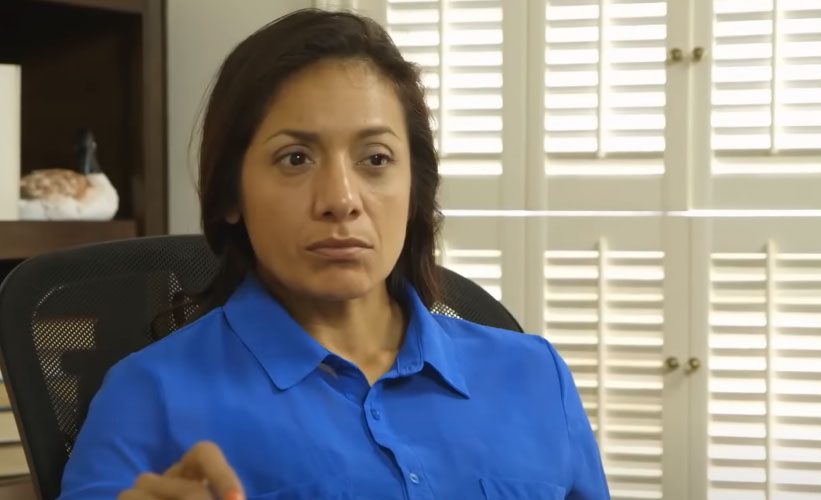
Oxycodone addiction is a devastating problem that affects millions of Americans. It's an opioid drug, meaning it can be highly addictive and cause physical and psychological dependence.
Unfortunately, this powerful painkiller has become increasingly popular in recent years, leading to a dramatic rise in the number of people who are addicted to oxycodone.
This article will explore the danger posed by oxycodone addiction, as well as provide information on how to get help if you or someone you know is struggling with oxycodone abuse.
Oxycodone is a powerful opioid drug that has been used to treat chronic pain since the late 1990s.
This medication can be incredibly effective in managing and reducing intense pain, but its potential for addiction is just as strong.
It’s important to keep preventive measures in mind when considering oxycodone as a form of pain management.
When taken correctly, the effects of oxycodone are highly beneficial.
It works by blocking signals from reaching the brain, which suppresses feelings of physical discomfort and pain.
Unfortunately, it also provides an intense sense of euphoria or pleasure; this makes it extremely easy to abuse - even at recommended doses - due to its addictive nature.
For those who struggle with addiction issues, seeking Inner Awakenings treatment before using oxycodone may be an essential step towards avoiding relapse.
Oxycodone addiction is a serious substance abuse disorder that can have long-term consequences. There are many signs and symptoms of oxycodone addiction that one should be aware of:
Understanding the risk factors associated with oxycodone addiction is key in recognizing if you or someone else has become addicted. Risk factors for developing an addiction include genetics, mental health issues such as depression, anxiety, trauma history, family history of substance abuse, and peer pressure.
Additionally, withdrawal symptoms commonly experienced when attempting to quit using are flu-like symptoms such as nausea and vomiting, shaking or tremors, muscle aches and pains, insomnia or difficulty sleeping restfully at night, irritability and agitation.
Acknowledging these warning signs can help identify if there’s reason to seek out Inner Awakenings professional treatment before it’s too late.
Actionable steps must be taken sooner rather than later to prevent an oxycodone addiction from spiraling out of control - seeking professional help is often the first step on the road towards recovery.
Like a slow-burning fuse, the causes of oxycodone addiction can be traced back to long term use and prescription misuse.
Long term use is when an individual takes the drug for extended periods of time; this could mean taking it longer than prescribed or in higher doses than recommended by a healthcare professional.
Prescription misuse occurs when someone uses medications that were not intended for them, such as using another person's medication or purchasing drugs on the black market.
It's easy to become dependent on opioid painkillers like oxycodone without even realizing it at first - until withdrawal symptoms start appearing and you know something isn't quite right.
Oxycodone changes how your brain works, creating an intense craving for more of the drug which leads to continued abuse and potential overdose risks if left unchecked.
It's essential to recognize these signs early on so treatment can begin before things spiral out of control.
With appropriate interventions, recovery from an oxycodone addiction is achievable and there are numerous resources available to help those affected get back on their feet again.
Quitting alcohol cold turkey can be dangerous. Learn about how to safely detox from alcohol by reaching out. All calls are 100% free and confidential.
(888) 430-6018The effects of oxycodone addiction can be extremely damaging and lead to dire consequences if not treated. The key is to find a treatment that works for the individual, as no two cases are alike.
Medication assisted treatments (MATs) and support groups have been found effective in helping individuals break free from their addictions:
Cognitive Behavioral Therapy (CBT) is another type of therapy used effectively to address underlying issues that may cause addictive behavior. This form of therapy helps individuals identify negative thought patterns while teaching them how to replace these thoughts with healthier ones in order to achieve better emotional balance.
Professional counseling offers individuals a safe space where they can talk openly about their struggles and receive guidance on how best to manage stressors which could trigger drug use or relapse.
For those who are seeking freedom from oxycodone addiction, it is important to realize that there are resources available that offer hope and healing — both individually tailored therapies as well as group settings. With commitment and dedication, one can gain control over the vicious cycle of substance abuse and reclaim life again.
Oxycodone addiction can have devastating consequences for those who become addicted. Fortunately, there are strategies that individuals can employ to avoid this type of substance abuse and its associated risks.
One essential step is recognizing the signs of oxycodone addiction, such as tolerance or withdrawal symptoms when not taking the drug. It’s also important to identify personal triggers, like stress or depression, which could lead to using drugs in an effort to cope with difficult emotions.
Developing healthier coping mechanisms is key in avoiding OxyContin addiction. Participants in peer support groups often find solace in sharing their struggles with others going through similar experiences; they may even learn helpful techniques from one another on how best to resist temptation and stay committed to recovery goals.
Exercise and mindfulness activities can help too by providing more productive outlets for dealing with difficult feelings than abusing substances. Additionally, finding meaningful ways to fill time — whether it's volunteering, joining a club or learning a new skill — will help keep people away from oxycodone use and connected to positive activities that provide structure and purpose.
All these methods are tools for avoiding oxycodone addiction while still allowing individuals access to the emotional resources necessary for managing life’s challenges safely and responsibly.
There is no exact time frame for when a person may become addicted to oxycodone; however, its dependence risks are high and should not be taken lightly.
Dependence on the drug typically occurs after using oxycodone for two weeks or more, with withdrawal symptoms becoming increasingly severe if use continues any longer than that.
Oxycodone addiction can develop quickly in some individuals over just a month of use and it's important to understand the potential consequences of taking this powerful opioid medication.
The dangers associated with an oxycodone addiction include serious physical and psychological effects such as depression, anxiety, exhaustion and even overdosing.
It's essential for people who take oxycodone to monitor their usage closely and seek medical attention immediately if they start to experience signs of dependency.
Oxycodone addiction can have long-term, damaging effects on an individual's physical and mental health. Those suffering from this kind of substance abuse may experience a range of withdrawal symptoms including nausea, fatigue, anxiety and depression.
Social stigma is also often associated with oxycodone addiction; those affected by it may feel ashamed or embarrassed to seek help for their problem due to fear of judgement from others. It is important that individuals who are struggling with oxycodone addiction realize that they are not alone and get the necessary treatment for recovery.
Many people suffering from addiction to powerful drugs like oxycodone are searching for natural remedies. Could there be a way to treat this devastating condition without hormone therapy or other drastic lifestyle changes?
The answer may actually surprise you! Recent research has revealed that certain natural methods can make all the difference when it comes to an individual's journey towards sobriety - and they don't need to involve any dangerous medications or harsh treatments.
So if you're struggling with oxycodone addiction, know that help is available in the form of simple, safe and effective natural remedies.
Recovering from addiction without professional help is a daunting task, but it's possible with the right support system.
Withdrawal symptoms and mental health issues related to an addiction can be difficult to manage alone, so having assistance is key for successful recovery.
When trying to overcome oxycodone addiction in particular, seek out a friend or family member who has experience dealing with substance abuse.
Having someone close that understands the situation can make all the difference when battling this type of dependency.
The emotional and financial burden of addiction can feel like a heavy weight dragging someone down. So, where can those who are struggling with oxycodone addiction find support?
The good news is that there are plenty of support groups available to help people on their recovery journey. These groups provide a safe space for individuals battling this difficult condition to connect with others in similar situations and receive the necessary guidance to overcome their substance abuse problems.
Not only do these support networks offer invaluable advice and understanding, but they also provide an opportunity to develop new coping strategies while being surrounded by compassionate peers.

It's easy to become addicted to Oxycodone without even realizing it.
The problem is that the effects of Oxycodone addiction can be devastating - both mentally and physically.
But there is hope; recovery from Oxycodone addiction is possible with professional help or through natural remedies, as well as support groups.
It takes strength and courage to admit you have a problem, but taking those first steps towards recovery are essential in order to reclaim your life.
We must all remember that we’re not alone in this fight against addiction- together, we can break free from its grip and live healthier, happier lives.
Call us today to speak with an addiction counselor: 888-430-6018

© 2025 Inner Awakenings LLC. All Rights Reserved | Sitemap
